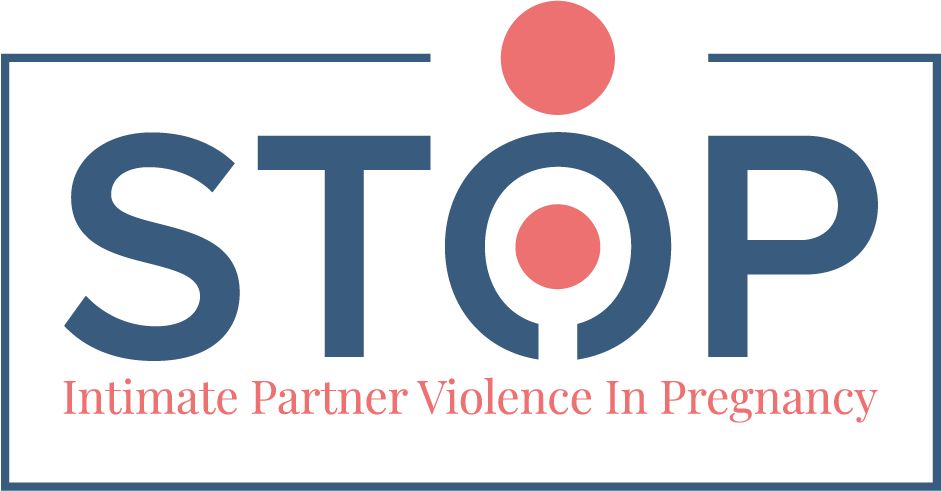Final conference
Month: September 2023
To maximize the outreach of STOP’s final conference, it is decided to hold the conference adjacent
to the International Day for the Elimination of Violence Against Women. The conference is held at
University of Granada with participation of numerous public and NGO stakeholders. The
conference receives widespread media coverage, including newspapers and television. The STOP
team presents outcomes from the project; this is followed by discussions with the audience about
the feasibility of interventions against intimate partner violence centered around pregnancy,
interventions targeted migrant women, and the potential of centering the intervention around
pediatric care. The program for the event, a signed attendance list, and the presentation is attached
as appendices.
Progress report
Month: September 2023
STOP project progress report on
- – Deliverables, milestones & critical risks
- – Overview of the progress & activities
- – Budget consumption
Communication platforms
Month: September 2023
This document describes the communication platforms and channels of the STOP project.
The target group and focus area of STOP requires careful considerations in relation to the
communication and dissemination efforts of the project and project partners in order not to put
pregnant women exposed to IPV at any further risk. Therefore, the initial efforts are focused
around the project website to reach a wide audience and raise awareness of the activities the
project undertakes in relation to combatting intimate partner violence. During the project
lifetime, the communication and dissemination efforts will be adapted.
The visual identity of the project has been developed in order to both represent professionalism
and a softer feel related to the target group. This is reflected in the blue and coral red colours and
in the project logo showcasing a pregnant woman.
The STOP project website contains different pages in order to present both introductory
information about the project and the outputs that are developed during the project including
news items. The pages on the website are divided in:
– Home/Landing page
– About the project
– Partners
– Publications and Outcomes
– News
– Contact.
The communication activities will be updated on an ongoing basis and several means of
communication have already been considered. The project expects to utilise and will take into
account the social media channel Twitter, development of a project leaflet, and the development
of project merchandise.
Dissemination Plan
Month: September 2023
Communication and dissemination in STOP are generally, but not exclusively, targeted to health
care professionals and other stakeholders. External communication efforts are centered around
the project’s website, which has serves as a repository of public deliverables and news titbits from
STOP. A logo for STOP is designed and used on project-related communications to provide a sense
of unity. Posters and an information flyer are developed specifically for use in the Danish antenatal
care settings to boost the screening effort and create awareness of the nature of IPV among
pregnant women. Internal communication is centered around near-monthly virtual status
meetings; six consortium meetings (three virtual and three in-person) are held. Dissemination
efforts are focused on professional events, with project members presenting the (preliminary)
results of STOP at conferences and project days in both Denmark and Spain. A final conference is
arranged as a dissemination seminar in November 2022 with participation from several
stakeholder organisations. Scientific dissemination of project results is ensured through scholarly
papers in relevant peer-reviewed journals.
Strenghts and limitations of the pilot RCT
Month: September 2023
This document describes a summary of the results of a pilot randomised controlled trial (RCT)
conducted in Denmark and Spain and its strengths and limitations (deliverable D5.3. describes in
more detail the results of the pilot RCT). It also contains propositions for future study designs
based on a review of the relevant literature as the pilot RCT demonstrated that a future full-scale
randomised study was unfeasible. In our pilot study, a subset of women from the STOP cohort
study who screened positive for IPV during their first antenatal visit were invited to participate in
pilot randomised controlled trial of psychological counselling by video conference. The objective
was to randomise a total number of 20 participants to either the intervention or the control
group. The intervention group received the e-health package (six video counselling sessions
combined with the use of a safety planning app), while the control group would receive the same
intervention yet with a delay of 8 weeks permitting collection of control outcome data. This
document will interpret the pilot findings and the existing literature to come up with possible
solutions to address the difficulties in the feasibility of a future full-scale randomised study
observed in the pilot study.

